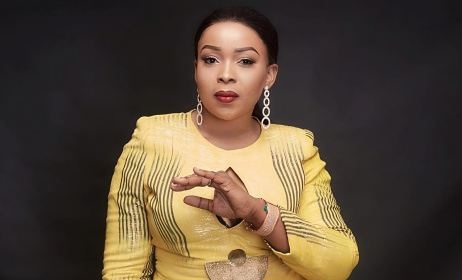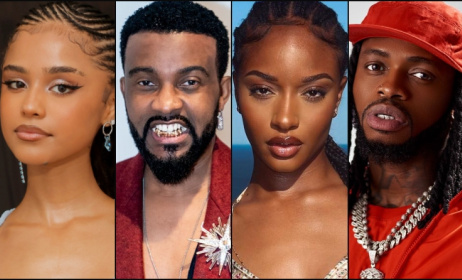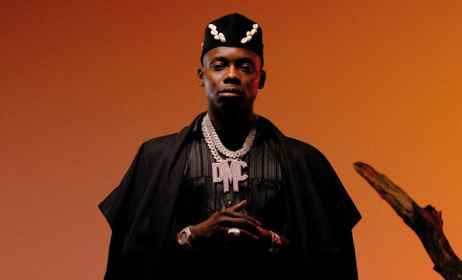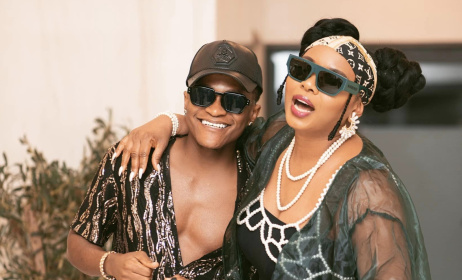Medikal live in London: Ghana missing Afrobeats memo
It is entirely possible that despite Ghana’s cornerstone status within Afrobeats, the West African country missed the memo about stadiums becoming the new measure of success. How else would one explain the immoderate national frenzy that has attended rapper Medikal’s 3 May London concert at the O2’s 2 800-capacity Indigo hall?
By the time its curtains were drawn down, the show – which spooled pop anthems and happy performances from a supporting cast of fellow Ghanaian popstars like veteran hitmakers Sarkodie, Shatta Wale and Efya, and the flaming hot Kumerica act Jay Bahd – had already garnered the label “historic” across media outlets back home. Indeed, the verdict by one news website was that the concert’s headliner “saved the Ghanaian music industry.” Sentiments thus (complacency, clever agenda, or proof of Naija-handed exceptionalism?) are specifically what provokes my opening premise.
At 31 years, Medikal rightfully stands as one of the hardest-working talents of his generation, and has come a long way since his disappointing 0 for 7 showing at the 2017 Ghana Music Awards. He boasts a deep supply starting with hip hop and expanding into dance (his London performance followed this sequence), and his craft, which evenly draws from personal history and comic lyricism, has raised eyebrows among rap purists as much as it has guaranteed him pop relevance with the masses.
It’s no secret that he has long harboured an affinity for London, evidenced by how regularly he taps into UK drill, and a British accent adopted early in his career that often punctuates his sentences. The show, his first major UK gig, adds significantly to his personal history. However, its implications for Ghanaian music, and whether Medikal indeed provided a rescue for a country’s entire industry, can only be properly determined with the benefit of hindsight.
What we can immediately deduce is the concert’s resonance among diasporans craving a taste of home and artists seeking renewed international validation. It reinforces London’s importance to the global travel of pop from these parts, fuelled in part by its strong black diaspora community. It is why shows like last Friday’s should not be beyond reach for Ghanaian acts targeting international breakthrough, the UK being the most reliable route.
While it marks Medikal’s flowering on British soil, for Sarkodie, a progenitor of the rambunctious archetype that the likes of Medikal follow, and Shatta Wale, Ghana’s most prolific hit merchant at work today, the concert must have been a nostalgic reminder of their own headline shows at the Indigo venue in 2016 and 2018, respectively.
Despite his hits, Medikal’s most impactful songs (‘How Much’, ‘Too Risky’, ‘Confirm’, ‘Adwee Ba’, ‘Stubborn Academy’, ‘Omo Ada’, ‘La Hustle’) pale in their puissance beyond Ghana’s borders. This explains his heavy reliance on songs on which he was a featured artist, and the night’s standout moments belonged to Shatta Wale, a dancehall expert only recently eyeing Afrobeats glory, and Jay Bahd, who is currently still enjoying the first flushes of real stardom.
The show itself offered little else by way of performance quality, with a noticeable deficit in a striking opening, engaging stagecraft, or a truly memorable live experience; resorting to miming over recorded tracks seemed to be the norm. To be fair, some Afrobeats artists could use some polishing with their craftsmanship in front of a live audience.
It used to be that filling the Indigo was the ultimate validation for African pop acts. These days, it’s hardly remarkable: several steps behind the 20 000-capacity O2 Arena, and stadiums accommodating something like 60 000 fans. Nigeria surpassed Indigo years ago, thanks to Wizkid, Burna Boy, Rema and Asake.
Despite Ghana’s current musical hurdles – be it poor infrastructure, a lack of funding, government support or international networks, or a perceived hostile media (post-concert Medikal rebuked a local TV station for spotlighting his reported divorce in an interview rather than the concert itself) – complacency remains a glaring issue. On the day of Medikal’s concert, in a different time zone, fellow Ghanaian King Promise, having taken a leaf from the page of his Nigerian peers, was wrapping up a three-date run. The tour, of small venues in Singapore, Bali and Jakarta, was trumpeted as groundbreaking, positioning him as a history-maker of Afrobeats, even if the pop world knows who Afrobeats’ real history-makers are.
If Ghana aspires to be more than just a spiritual home for Afrobeats, it must urgently evolve away from mere inclusion in the conversation. Its artists must shed excessive entitlement to home support, acknowledge when something is alright and not too exceptional, and look beyond feats that are now commonplace within the genre, such as features with US popstars, indirect Grammy nominations, and yes, the Indigo at the O2. If packing larger venues seems like a tall order for now, an emphasis on exceptional and unforgettable performances will more than suffice.
All in all, for patrons and performers alike, whatever the place of Medikal’s London show in the broader Afrobeats discourse, it is a step forward. A win is a win. “Ghana too go fit do am,” Shatta Wale roared with husky optimism while on stage. The trick: “It’s all about unity.”





























Commentaires
s'identifier or register to post comments